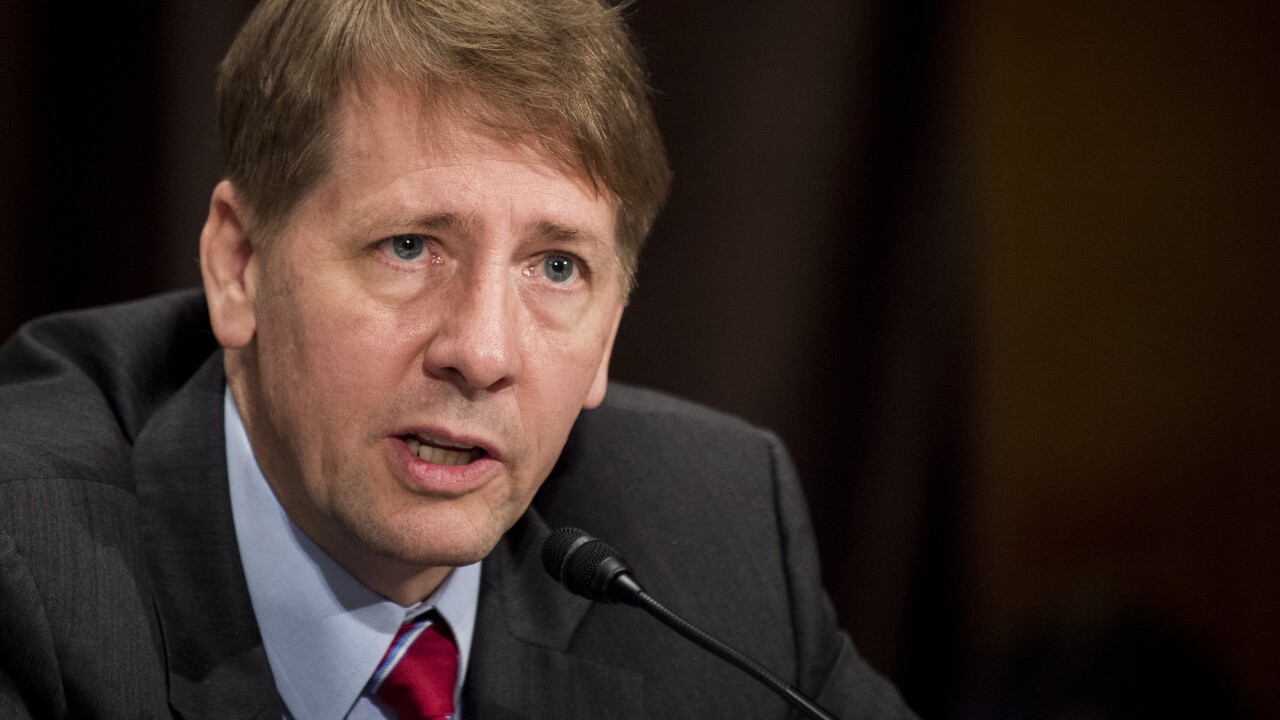-
The Senate's repeal of the Consumer Financial Protection Bureau rule is arguably the industry's biggest policy victory since passage of Dodd-Frank. But is it the sign of a trend?
October 25 -
The accord is the latest development in investigations by governments across the globe into banks’ manipulation of benchmark interest rates.
October 25 -
While used infrequently by credit unions, arbitration clauses can be an effective way to ensure both the credit union member and the credit union's interest are protected when disputes arise.
October 25
-
Pence breaks tie to overturn rule prohibiting mandatory arbitration; depositors receiving higher rates in effort to retain them.
October 25 -
If you’re an omnichannel merchant, it’s critical to analyze fraud separately across your brick and mortar, online and mobile channels, in order to focus your information security resources where they are most needed, writes Michael Lynch, chief strategy officer for InAuth.
October 25 InAuth
InAuth -
Republicans were able to use an obscure legislative process to overturn a rule that banks and credit unions feared would raise their litigation costs.
October 24 -
But using a broad, sweeping rule that applies equally to credit unions and Wall Street banks doesn't make sense, and certainly doesn't benefit the consumer.
October 24
-
Consumer Financial Protection Bureau Director Richard Cordray pushed back against a Treasury Department report critical of the bureau's arbitration rule, saying it overlooked how class action lawsuits help consumers.
October 24 -
The GOP appears to have barely enough votes to roll back the contentious CFPB rule, and floor debate was expected to begin Tuesday with a final vote possible at any time. But victory was not assured, and the fallout could be significant for all sides.
October 24 -
Credit unions rely on a brand of fairness and trustworthiness, which would be severely weakened if more credit unions started using forced arbitration.
October 24 Self-Help Credit Union
Self-Help Credit Union -
Why are credit unions lending their name to this fight when the vast majority of them do not use forced arbitration and have not been caught up in Wall Street’s excesses?
October 24 National Consumer Law Center
National Consumer Law Center -
Treasury contests agency’s claims that ban on mandatory arbitration benefits consumers; former head of FX trading used client information to profit the bank.
October 24 -
The lowest rates could be a sign the provider is not investing in itself, not being entirely transparent, or not providing a wide enough range of services for their clients, writes Drew Sementa, CEO of Tidal Commerce.
October 24 Tidal Commerce
Tidal Commerce -
With days ticking down for lawmakers to overturn the Consumer Financial Protection Bureau rule, some are now questioning the statistics used to challenge the bureau’s data.
October 23 -
British regulators are touting the success of their so-called regulatory sandbox. Their American counterparts have been unable to agree on a comprehensive scheme to foster innovation.
October 23 -
The Treasury Department released an 18-page report saying the rule would “impose extraordinary costs” including legal fees mostly for lawyers that bring class-action lawsuits.
October 23 -
Equifax continues work to add new security features and restore full access to The Work Number following a report highlighting potential security vulnerabilities in a browser-based portal of its employment verification service.
October 20 -
A judge who imposed a $45 million penalty on Bank of America Corp. over a foreclosure on a California couple still isn't ready to forget the case he described as a "Kafkaesque nightmare."
October 19 -
Regulators usually avoid the public fights that define other realms of the polarized Washington landscape, but the recent tiff over the arbitration rule is an exception.
October 18 -
In a surprise move, the Supreme Court will decide whether Amex may bar merchants from steering customers to less expensive card networks. The card issuer will have to prove the consumer gain from its practices outweighs the merchant pain.
October 16












